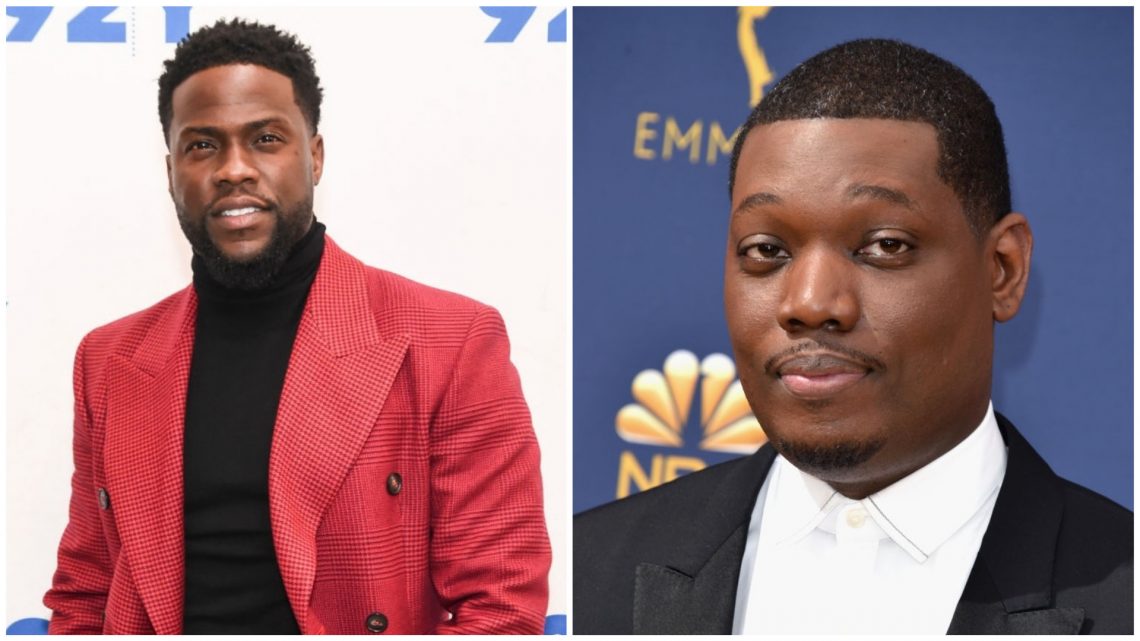
Kevin Hart’s Defenders Said More Than They Realized
December 10, 2018Last week, Kevin Hart announced that he would step down as the host of the 2019 Oscars amid controversy over his homophobic tweets from 2011. He claimed he had already addressed the tweets previously and didn’t think it was necessary to apologize again, instead opting to walk away from hosting all together. The news sparked divided reactions about whether Hart should have just apologized or whether the whole scandal was yet another example of a supposedly excessively politically correct internet mob gone too far.
But as Hart’s fellow comedians started coming to his defense, the racial tension underlying the controversy has become a bigger focus. Over the weekend, Nick Cannon went on a tear on Twitter, resurfacing old tweets from white female comedians—Chelsea Handler, Amy Schumer, and Sarah Silverman—that use homophobic slurs. “I wonder if there was any backlash here” he commented, ending with a slightly ominous warning: “I’m just saying … should we keep going?” He didn’t seem to be advocating a protest against the women (he pointed out that he loved Wreck-It Ralph, which Silverman voiced a character for), but rather, suggesting that a double standard was at play.
Also on Saturday, Michael Che trotted out a new defense of Hart on Saturday Night Live’s “Weekend Update.” Just a few months prior, the 2018 Emmy co-host had offered a weak justification of disgraced comedian Louis CK’s return to the comedy scene; this time, his comments about Hart appeared to be grounded in the racial anxiety of seeing one of Hollywood’s least controversial black comedians (until now) felled. “Didn’t the Academy nominate Mel Gibson for an award just last year?” Che asked, as a black woman appeared to yell out in agreement, prompting extra laughs. “If Kevin Hart isn’t clean enough to host the Oscars then no black comic is. The only black comic I know that’s cleaner than Kevin Hart is booked for the next 3-10 years.” A picture of Bill Cosby then flashed on the screen.
The barely humorous comment was, on its surface, yet another example of a black man defending another problematic black man from backlash by pulling the race card. But Che’s point had truth behind it: We know that black people tend to experience more swift and severe career punishments for missteps, and that their free expression is hyper policed (whether that’s their hair, clothing, slang, or political opinions). It wouldn’t be surprising if black comedians were given less leeway to offend than others as comedy joins a variety of industries grappling with when and how to enforce changing standards. Curbing black comedians' expression would threaten a rare forum where they’ve been able to push boundaries of acceptable conversation for decades, often in positive new directions.
But now that some of the most famous black comedians are of an older era struggling to understand the latest developments of the culture they’re a part of, their quest to maintain free speech in comedy can sometimes harm other groups that have also been oppressed. Dave Chappelle’s wildly controversial return to stand-up in his 2017 two-part Netflix special was a prime example. He jokingly framed the LGBTQ community as entitled and naive to be upset with America for ignoring their cries, arguing that black Americans have dealt with that reality for much longer. “If the police shot half as many transgenders as they do niggas each year there’d be a war in LA,” he said during his show, titled “The Age of Spin.” Chappelle offered a pseudo-apology the following show, clarifying that he wants everyone to have their rights but finds it difficult to listen to people talk about “how one feels inside” when black people can’t conceal their race.
There’s a relatable weariness threaded in the comments by Cannon and Che, an awareness that black professionals are certainly treated differently. Missing from it, however, is a recognition that that experience doesn’t mean comedians have a blanket pass to say whatever they wish, particularly when it comes to other minorities. In Kevin Hart’s case, the Academy’s decision to give him an option to apologize was actually in line with the way they’d handled similar controversies in the past. But comedians and fans alike have been up in arms about whether stand-up should have any boundaries at all for ages now. At this point, the dialogue is so repetitive it’s become as much a part of their material as the jokes themselves.
Sign up for our newsletter to get the best of VICE delivered to your inbox daily.
Follow Taylor Hosking on Twitter.


